Ringley has construction qualified professionals overseeing all things plant and equipment – it is a minefield and not for the fainthearted. This frees up our Block Managers to deal with running the block for the residents and to focus on all the things that drive community and making spaces become places. Those in our Building Tech Team who run the PPM (Planned Property Maintenance Plan) are therefore able to answer questions on what plant does, analyse the technicalities and consider matters such as equipment lifespan no matter the size of your building/portfolio.
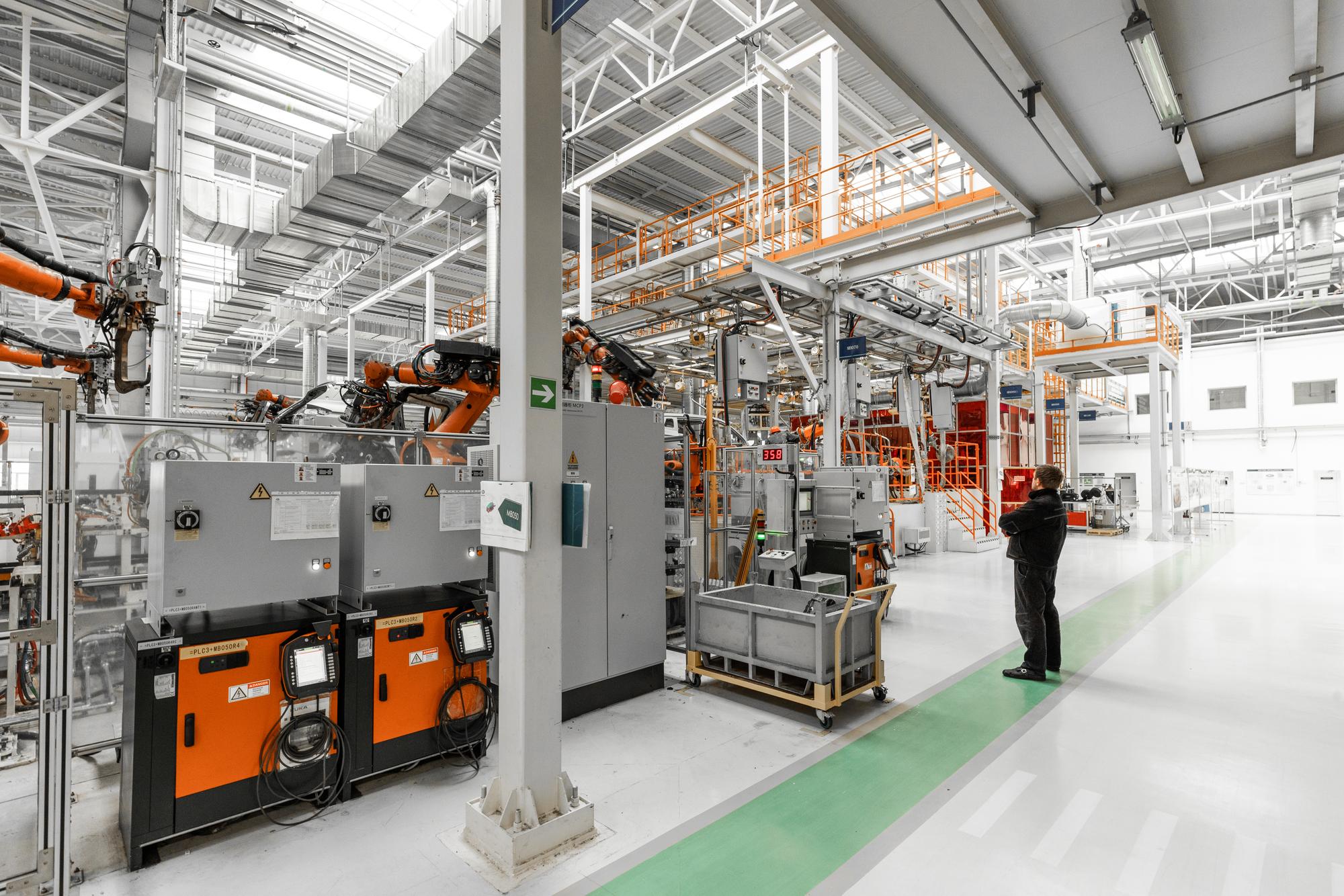



Overview Plant & Facilities Management
"Good Facilities Management (FM) should not been seen it should be felt. It is about governance, and thinking about what needs doing when, Done well, FM opens up opportunities for bulk procurement to deliver savings and reducing reactive repair costs as well as amortising planning for end of life rather than big hikes in bills later."
In line with the Ringley brand promise of 100% transparency, our Clients can get to see the same Planned Preventative Maintenance Tracker that our teams work on. This ties the plant asset register, to individual plant items and then to the relevant legislation or British Standard that governs what preventative maintenance is required.
Ringley has construction qualified professionals overseeing all things plant and equipment – it is a minefield and not for the fainthearted. This frees up our Block Managers to deal with running the block for the residents and to focus on all the things that drive community and making spaces become places. Those in our Building Tech Team who run the PPM (Planned Property Maintenance Plan) are therefore able to answer questions on what plant does, analyse the technicalities and consider matters such as equipment lifespan no matter the size of your building/portfolio.
Our Building Tech Team and Facilities Managers work in two ways:
- alongside the traditional block or property manager or to offer guidance, scrutiny and oversight of all facilities,
- independently to separate out the work of looking after the plant from the day to day resident management.
Ultimately what we then assure is that plant included on the agreed asset register is managed and maintained to the law & British Standards. The scope of what we do includes:
- creating an asset register for your database and plant items
- databasing manufacturers recommended equipment lifespan to inform CapEx plans
- reading the O&M Manuals to inform on maintenance regime
- establishing a maintenance regime
- specifying the standard of maintenance for contractors
- creating the PPM (Planned Preventive Maintenance) plan
- diarising maintenance due dates
- arranging QR item tagging to assist
- 100% right identification of plant 1st time
- Easier to analyse faults & end of life planning
- Enables sharing and improving of records with 3rd parties
- Easy to check item is certified and safe to use
- Immediate answers to service history questions
The risk of not getting it right is either an unlimited fine from Health & Safety Executive (HSE) or being sent to prison.
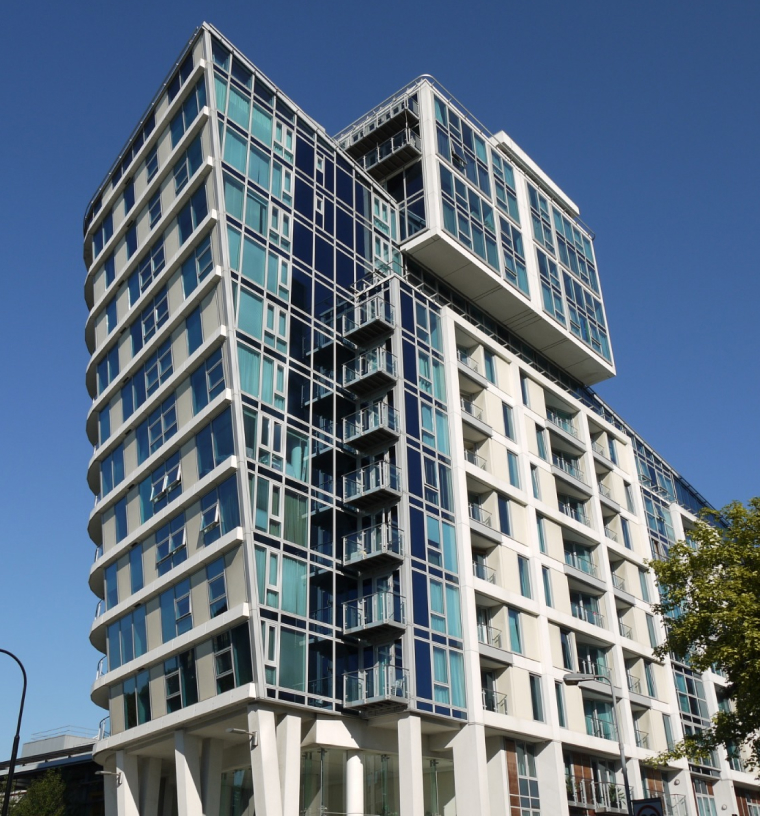
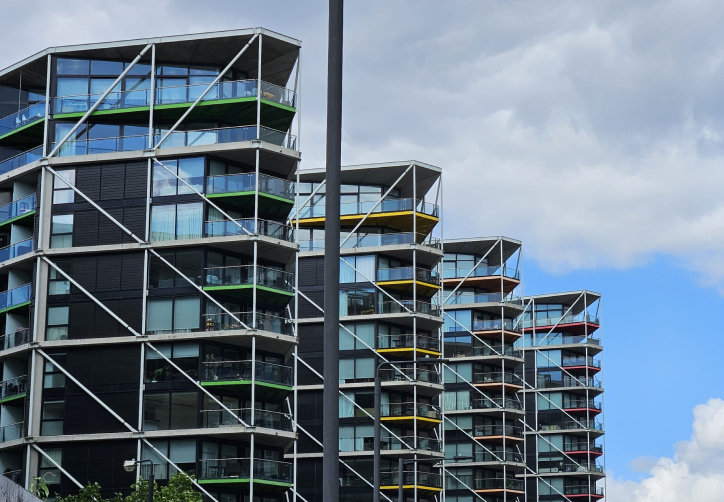
Audit trail trumps all, there are legal requirements and there is best practice. Decisions should be documented and plant and equipment inspection reports checked.
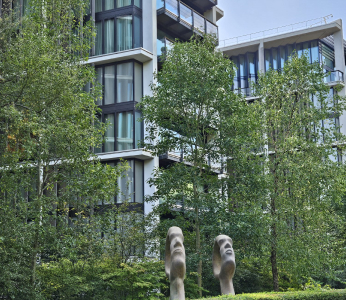
Building Owners duties
Ensuring safety is the bare minimum. The law specifically includes the Building Owner as duty holder and so appointing an Agent is not a defence, so your PPM Diary and statutory inspections need to be up to date!
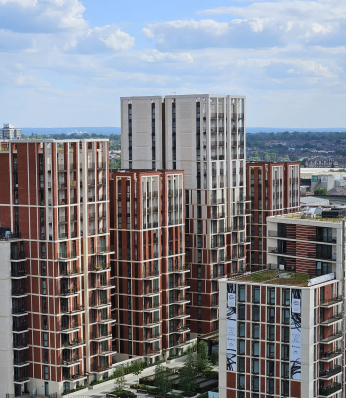
What does a Facilities Manager do?
A Facilities Manager will understand the importance of statutory requirements, things you "must" do and best practice, things you "should" do. They will create a Planned Preventative Maintenance (PPM) Plan or Diary which will schedule when things are due to keep all parties on track.
Asset tagging: why wouldn’t you?
There are many reasons why a Building Owner should consider digitalising plant inventory and tagging process. These include:
100% right the 1st time
(contractors repair the
right item!)
Easier to: analyse faults,
manage end of life
planning
Share & improve
records with 3rd
party collaboration
Work on correct
fire door
Easy to check if an
item is certified
safe to use
Answer questions whilst
on site: service history?
Next inspection due?
Bonus! Feeds into and
closes fire risk
assessment items
The FM Plant & Equipment Compliance Dashboard
The FM Plant & Equipment Compliance Dashboard. This flushes out if items in the asset register are:
- Not budgeted
- Awaiting cataloguing
- Awaiting inspections (because the inspection is overdue)
- Subject to ‘open actions’
- Subject to ‘open tasks’ and includes a diary system to make it easy to know who to chase and when, better still, the computer will auto chase contractors for overdue items.
The Plant & Equipment Inspection & Tasks Dashboard
Managing the instruction, collation, analysis and tasking of multiple inspections to multiple items of plant is made easy via the Plant & Equipment Inspection & Tasks Dashboard. This page shows:
- The Contractor assigned
- Last inspection date
- Date next inspection due
- Holds a copy of the PDF test report
- The Works Order and hyperlinks to the contractor
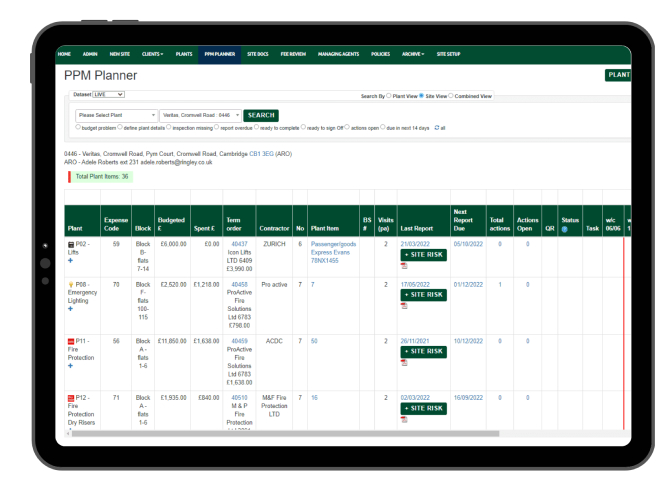
Work reduction
To help keep on track and reduce work the system we have automated:
- The diary - to schedule the required frequency of inspections (depending on the plant or equipment type) and when the next inspection is due
- Chasing contractors for overdue reports
- Works Orders to cite and meet the required British Standards
- On-screen guides as to what is required during an inspection
- Client Advice Notes
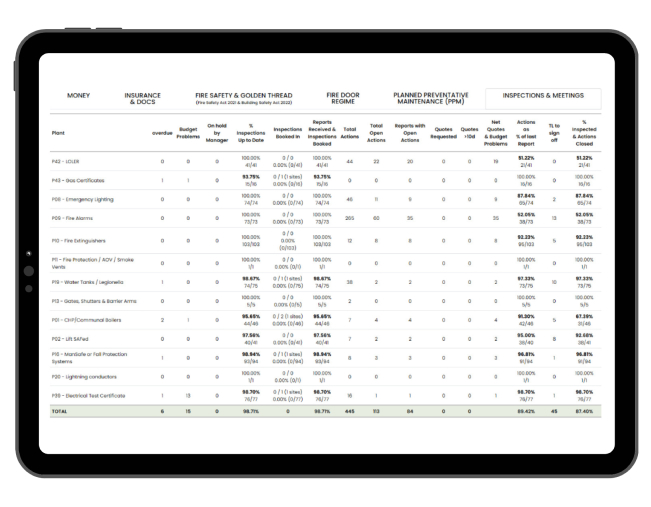
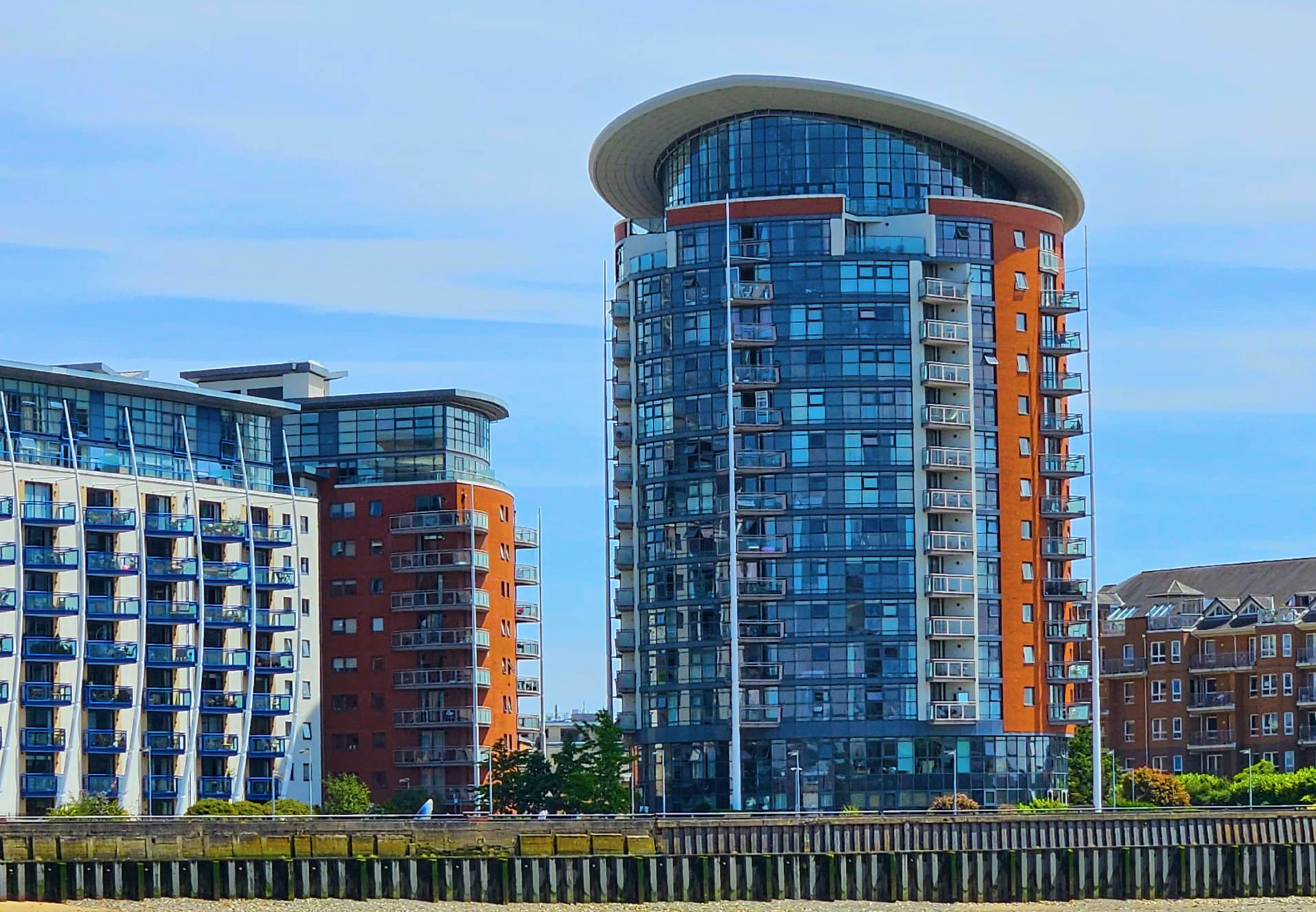
Today’s modern residential buildings are not far off as complex as a commercial building, this is where Facilities Management as a discipline becomes absolutely critical to protect not only the value of the asset but the health & safety of occupiers too.

Hard & Soft FM Services
We look after Hard FM Services (plant & equipment) as well as Soft FM Services (front desk, housekeeping, security and concierge). We offer nationwide coverage.
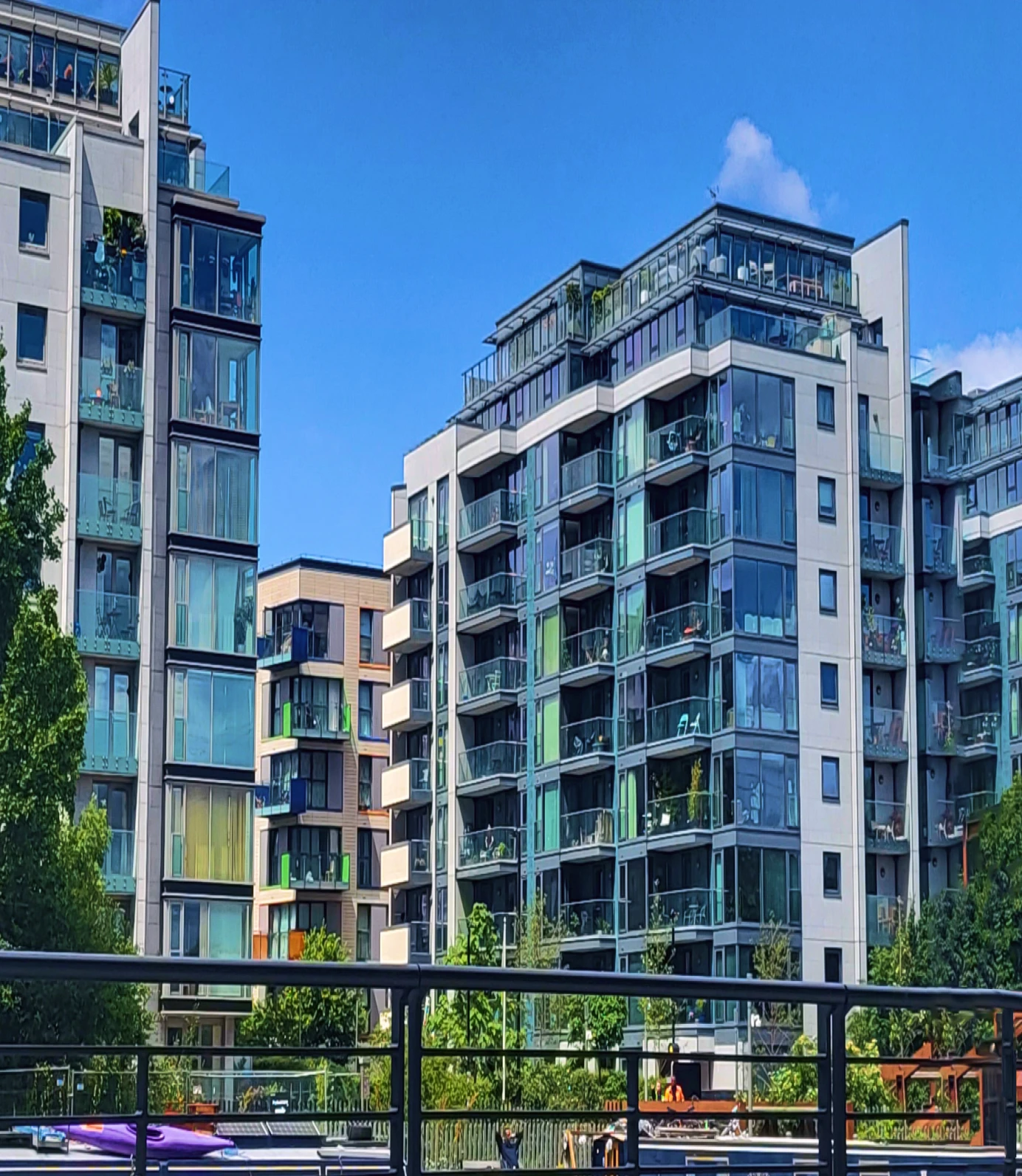
Help with Reactive Repairs
Beyond scheduled maintenance and proactive planning equipment will fail. This is where our Repairs Helpdesk come into their own to make light work of arranging call outs and managing communication.
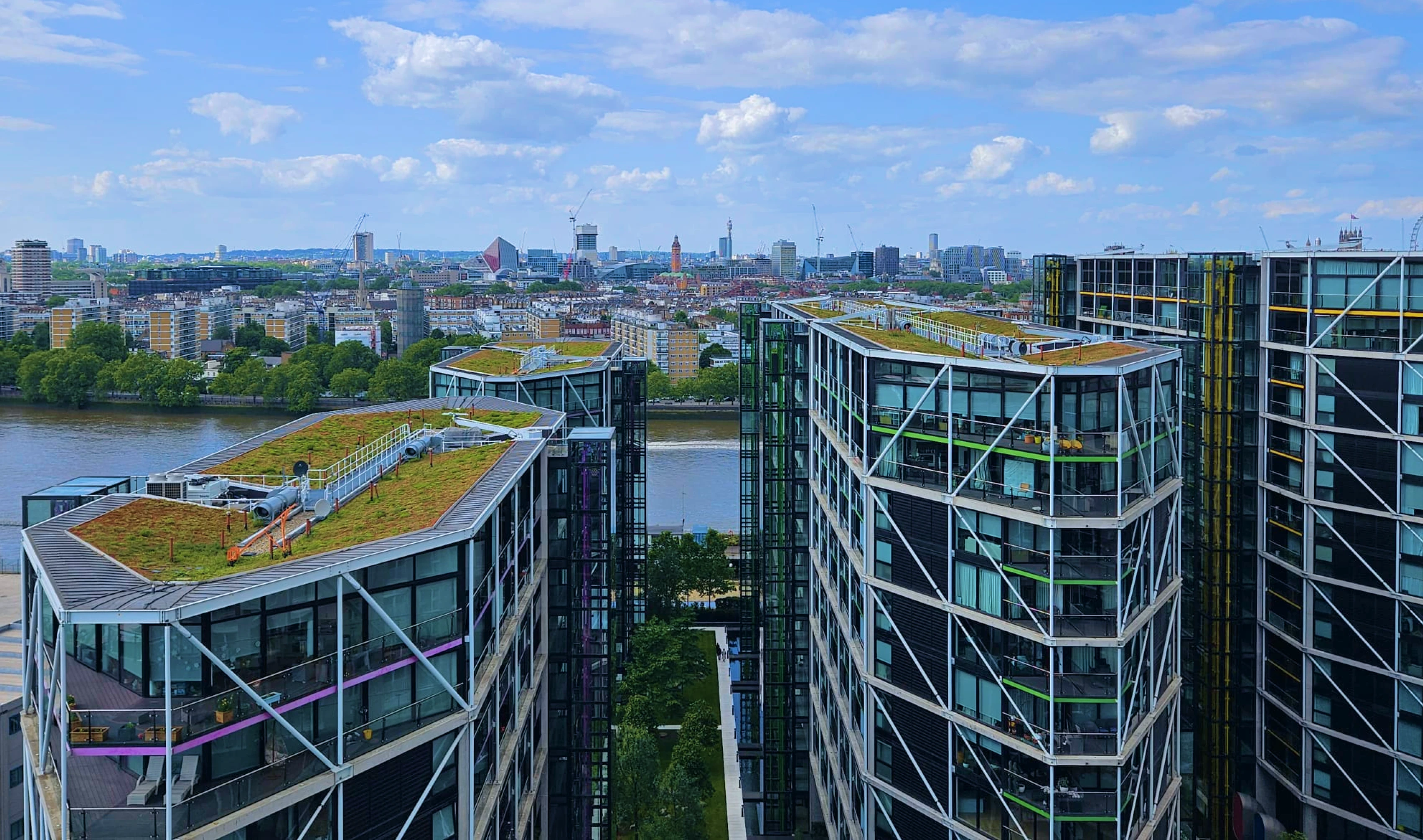
Most building owners make the mistake of not extending their CapEx plan to include plant and equipment. This is where asset tagging, databasing manufacturers make, model and recommended lifespan comes in. We work to plan the useful remaining life of installed plant and with M&E Engineers to consider modern energy efficient replacement plant as technology evolves.

Energy & Utilities Management
Through utilitiessorted.co.uk we offer energy management. We can read from equipment data loggers on site to create and send Energy Bills to residents. We have advanced analytical tools and run various month end tests to ensure that billing at least matches the energy supplier costs incurred.
Ringley has construction qualified professionals overseeing all things plant and equipment – it is a minefield and not for the fainthearted. This frees up our Block Managers to deal with running the block for the residents and to focus on all the things that drive community and making spaces become places. Those in our Building Tech Team who run the PPM (Planned Property Maintenance Plan) are therefore able to answer questions on what plant does, analyse the technicalities and consider matters such as equipment lifespan no matter the size of your building/portfolio.
- alongside the traditional block or property manager or to offer guidance, scrutiny and oversight of all facilities,
- independently to separate out the work of looking after the plant from the day to day resident management.
- creating an asset register for your database and plant items
- databasing manufacturers recommended equipment lifespan to inform CapEx plans
- reading the O&M Manuals to inform on maintenance regime
- establishing a maintenance regime
- specifying the standard of maintenance for contractors
- creating the PPM (Planned Preventive Maintenance) plan
- diarising maintenance due dates
-
arranging QR item tagging to assist
- 100% right identification of plant 1st time
- Easier to analyse faults & end of life planning
- Enables sharing and improving of records with 3rd parties
- Easy to check item is certified and safe to use
- Immediate answers to service history questions
The risk of not getting it right is either an unlimited fine from Health & Safety Executive (HSE) or being sent to prison.
The two primary investigation bodies on health & safety issues are the HSE and The Fire Service. A fire starting accidentally or an ill-trained operative using plant or equipment wrong is not a defence. What investigators will be looking for is good record keeping, documented procedures, competent scoping of works and audit trail of compliance. The absence of any parts of these will impact on the outcome of any safety investigation. Simply knowing or thinking you are safe is no longer enough which begs the question.
- Planned Preventative Maintenance (PPM) diary
- manufacturers data (including energy efficiency ratings – to assist in calculating emissions for carbon footprint)
- PDF reports
- Recommendations
- Contractors being chased
- Actions taken
- Works Order audit trail
-
cost control:
- site staff can undertake parts of PPM to drive returns
- bulk procurement to achieve value
- informed decisions rather than a reactive response when plant fails
-
analysis:
- budget vs planned spend
- investigation of escalating repairs costs
-
technical know-how to
- put fail safe mechanisms in place, e.g., spares on site
- benchmark charges
- detailed knowledge of contractor performance
-
diary views to manage
- PPM visits (Planned property maintenance)
- end of life planning
-
audit trail to show:
- inspection reports are received
- recommendations are closed out
-
Facilities onboarding & setup
- Listing, tagging and cataloguing all identified plant and equipment within the building(s), then creating a Planned Preventative Maintenance Plan
-
Managing Procurement
- Budgeting and verifying the regime of the maintenance for plant, tendering contracts and scoping works ordered
-
Facilities Management
- Checking plant and equipment inspection reports, setting up your PPM diary so all know what is due and when, databasing recommendations so that actions can be closed out
-
Compliance Tracking
- Keeping abreast of legislation and British Standards, feeding end of life planning data into the CapEx plan, monitoring the building or portfolio wide dashboard
100% right the 1st time (contractors repair the right item!)
-
Easier to: analyse faults, manage end of life planning
Share & improve records with 3rd party collaboration
Work on correct leaf/fire door
Easy to check if an item is certified safe to use
-
Answer questions whilst on site: service history? Next inspection due?
Bonus! Can feeds into and closes fire risk assessment actions
- Not budgeted
- Awaiting cataloguing
- Awaiting inspections (because the inspection is overdue)
- Subject to ‘open actions’
- Subject to ‘open tasks’ and includes a diary system to make it easy to know who to chase and when, better still, the computer will auto chase contractors for overdue items.
- The Contractor assigned
- Last inspection date
- Date next inspection due
- Holds a copy of the PDF test report
- The Works Order and hyperlinks to the contractor
- The diary - to schedule the required frequency of inspections (depending on the plant or equipment type) and when the next inspection is due
- Chasing contractors for overdue reports
- Works Orders to cite and meet the required British Standards
- On-screen guides as to what is required during an inspection
- Client Advice Notes
Put simply, our focus is to invest time in the analysing and decision making from inspection reports, not wasting too much time doing the arranging and chasing. In the same way, when inspection reports are chased, diary functions enable the user to decide when to chase next, so that they do not have to start from the beginning of the TASKS TO CHASE list everyday!
Our team provides facilities management of the highest quality for our clients by using a deeply integrated approach that combines highly skilled staff with cutting-edge technology. The team provides services to tenants and guests, looks after the facilities and is in charge of building management. A set of strongly held convictions underpin all of our work and planning:
We make sure that we do everything to keep safe all those living in our buildings, visiting or working there. To realise this goal, we undertake a detailed risk assessment with our clients against a clear set of objectives. We use manuals, handbooks, policies, procedures as well as instructions and guidance forms.


The attitude that prevention is better than cure guides our maintenance strategy which requires our teams to be responsive and act quickly to correct mechanical and electrical faults. Specialist engineers are engaged, trained and equipped to ensure an efficient fix first time which generates significant cost savings in the long term life of the building.
-
Duty of care
Keep the Property Owner informed of changes in the Law, including required statutory notices and other mandatory and best practice requirements and use best endeavours to ensure the Property Owner is complying with its obligations.
-
Advise generally
Manage the Property in accordance with the Law, and covenants contained in Leases, Transfers and Licences and clauses in Contracts and this Agreement, including advising when notices should be served.
-
Inspect
Inspect generally without carrying out a building or condition survey and without use of equipment, the common parts and exterior parts of the property as can be inspected safely from ground floor to ascertain for the purpose of day-to-day management only the general condition
-
Budget
Prepare and advise the Property Owner in respect of the Budgets required to include facilities and/or service charge and/or estate charge expenditure and CapEX. Prepare budgets for approval at least two months before the end of the Accounting Year.
-
Collect charges due
Use best endeavours to collect current estates and/or service charges, reserve and sinking fund contributions and ground rent due, together with any arrears thereof, and any other payments due from sectors, leaseholders, headlessees or freeholders.
-
Share information, assist sales
Keep files of freehold transfers, leases and other documents relating to the Property. Attend to routine enquiries from the Property Owner or any freehold owner, leaseholder, tenant, tenants' association; and distribute service charge accounts and demandi any balancing charge. For any leasehold sales provide information to solicitors and others in connection with enquiries on sales (for which fees would be chargeable to those applying for the information).
-
Annual accounts
Appoint an accountant to prepare the Facilities or Service Charge accounts and present them once approved to those who have to contribute to costs within six months of the year end, save for where such accounts have not been agreed or signed off by the Property Owner in which case where required to serve a Section 20B Notice.
-
Management plans
Undertake Building and Estates or Grounds Management in accordance with the Strategy and Operational Plans and revise them periodically.
-
Manage risks
Advise on implementation of fire & general risk matters and the Asbestos at Work Regulations and Control of Asbestos at Work Regulations.
-
Statutory Consultation
Where legislation requires consult on expenditure relating to maintenance agreements and works with relevant stakeholders and those liable to contribute.
-
Manage hard and soft services
Put in place specifications for routine services such as cleaning, gardening. Tender, enter into and manage maintenance contracts on behalf of the Property Owner. Administer payments to suppliers, contractors and others, as appropriate. Procure works using suitably qualified contractors holding the appropriate qualifications, accreditations and insurances and oversee and approve the works as being in accordance with the instructed scope to a quality standard and finish.
-
Reporting
Advise generally on the management of the Property and make appropriate recommendations.
Provide updates in respect of all on-going Property maintenance projects and issues. Report on:
- The physical state and condition of the Property and any planned or emergency work, management issues and compliance, areas of concern including security, vandalism and theft issues with supporting commentary on CCTV, door access logs etc.
- Variance from the Planned Property Maintenance Calendar
- Breaches and claims presented or incidents that might lead to a breach by any Tenants of their respective obligations
- Details of all health and safety reportable incidents in accordance with RIDDOR or that could give rise to a public or occupiers liability claim.
- Assist in the production of Asset Management reporting including: all relevant information for the production of external valuations.
-
Health & Safety
Provide and maintain a health and safety policy for the Property including:
- Procuring the necessary risk assessments, and acting on recommendations.
- Procuring inspections of communal fire doors and apartment fire doors as required.
- Maintaining injury and accident reports and records of actions taken which must include notifying the Property Owner as soon as reasonably practicable any incidents.
- Interim health and safety checks to ensure continued compliance with Law and good industry practice and current health and safety regulations, fire safety regulations, and Property Owner insurance policies.
- Purchase, supply, safeguard and maintain all necessary equipment to carry out the obligations under this Agreement.
- Instruct building maintenance to achieve compliance with Health and Safety legislation through the establishment of a Health and Safety policy, control of hazardous and deleterious materials and control of substances hazardous to health, compliance with Environmental law.
-
Manage hard services
Arrange: Statutory Maintenance, Planned Maintenance, Reactive Maintenance.
Advise on and ensure appropriate third party contracts and systems are in place.
Ensure that monitoring is in place for security systems, building alarms and emergency telephones from a 24 hour facility and ensure an appropriate level of response.
-
Planned Preventative Maintenance (PPM)
Create and manage a Planned Preventative Maintenance schedule, arrange quotes and carry out works as required to comply with relevant British Standards and or best practice.
- Ensure all Plant and Machinery is inspected on a regular basis and maintained in accordance with applicable law, good industry practice and the equipment manufacturer recommendations, operating instructions and relevant O&M Manuals.
- Ensure that fire appliances are provided at appropriate positions and fire alarm systems are fully operational ensuring a testing regime is in place and documented.
- Procure a third party contractor inspects and maintains the lifts and put in place Engineering Inspection insurance.
- Arrange annual PAT for all Property Owner owned appliances where "Portable Equipment" shall mean any Property Owner owned appliance which requires connection to an electrical supply by means of a plug (whether or not fused) and a socket.
- Arrange, at appropriate intervals, a water risk assessment and implement accordingly with the contractor an adequate scheme of control. Procure maintenance for boiler, pumps, fans, ventilation, hot water, lifts and all system repairs. Ensure that plant rooms (including electrical switch and riser rooms) are kept locked, clean, machinery is guarded and that appropriate warning signs and safety posters displayed.
-
Estate Services: Housekeeping
Maintain legible and visible warning and information signage in accordance with the design, Good Industry Practice and Law. Co-ordinate activities with other stakeholders on site. Ensure that covers, gratings and frames are firmly fixed and sound and that all traps are charged and free from weeds and mud. Where considered beneficial put in place an annual drainage maintenance contract.
-
Estate Services: Cleaning
Arrange cleaning of the common parts and Welfare Areas to keep the Property clean and hygienic and isolate areas as necessary in case of any hazards caused by faults whilst awaiting rectification.
-
Estate Services: Grounds maintenance
Arrange grounds maintenance to communal roof terraces, gardens and external areas including graffiti removal, tree pruning, planting, grass cutting, maintenance of garden furniture and play equipment (if any).
-
Estate Services: waste
Manage waste, recycling, bin rotation and waste segregation as well as waste licence agreements for any commercial areas under the Property Owner's control. Maintain a system for recycling of waste and ensure that such schemes are publicised to the Tenants are encourage them to participate in them.
-
Manage utilities
Where utilities are require reading and calculation/apportionment to Tenants, deal with utility billing entities. No responsibility for calibration or meter faults.
-
Reactive repaira
Carry out maintenance and adhoc repairs including spot painting.
-
24 hour helpdesk
Provide decision making 24/7 supported by a manned out of hours call monitoring centre or staff on site as required. Repairs whether emergency and non-emergency are logged together with a description of the fault/incident. Appropriate priority is established to items critical to the on-going operation of the Property or which have a bearing on safety in line with the Maintenance Response Times set out in this Schedule. Accurate records are maintained whether procured via an employed Maintenance Engineer or a jobbing contractor.
-
CapEx Plan
Procure a CapEx plan and have it updated by a Chartered Surveyor or Chartered Engineer at least every five years. Review the CapEX Budget annually. Place orders with professional advisers to coordinate, managing and procuring the CapEx works agreed.
-
CapEx works
Arrange replacement and refurbishment activities, as required and with the Property Owner's approval.
- Appoint a Contract Administrator to procure to coordinate, manage, procure and place contracts for CapEx works agreed to be carried out in the respective year along with suitably qualified and Property Owner approved planning, design, surveying, engineering, architecture and construction teams as required including a suitably qualified professional to ensure compliance with the Construction (Design and Management) ("CDM") Regulations, including works carried out by Sub-Contractors, where appropriate.
-
Security
Take active steps in the interests of crime prevention anti-social behaviour including instructing Solicitors. Procure that CCTV is regularly monitored and maintained with footage is held on archive for two weeks. Deal promptly with faults or incidents that present a hazard to security.
-
Facades and glazing
Ensure glass is kept clean, broken panes of glass are made safe and replaced, that opening windows are in working order, faults in locks and other ironmongery are fixed.

Today’s modern residential buildings are not far off as complex as a commercial building, this is where Facilities Management as a discipline becomes absolutely critical to protect not only the value of the asset but the health & safety of occupiers too.

Hard & Soft FM Services
We look after Hard FM Services (plant & equipment) as well as Soft FM Services (front desk, housekeeping, security and concierge). We offer nationwide coverage.

Help with Reactive Repairs
Beyond scheduled maintenance and proactive planning equipment will fail. This is where our Repairs Helpdesk come into their own to make light work of arranging call outs and managing communication.

Most building owners make the mistake of not extending their CapEx plan to include plant and equipment. This is where asset tagging, databasing manufacturers make, model and recommended lifespan comes in. We work to plan the useful remaining life of installed plant and with M&E Engineers to consider modern energy efficient replacement plant as technology evolves.

Energy & Utilities Management
Through www.CHPBilling.com we offer energy management. We can read from equipment data loggers on site to create and send Energy Bills to residents. We have advanced analytical tools and run various month end tests to ensure that billing at least matches the energy supplier costs incurred.


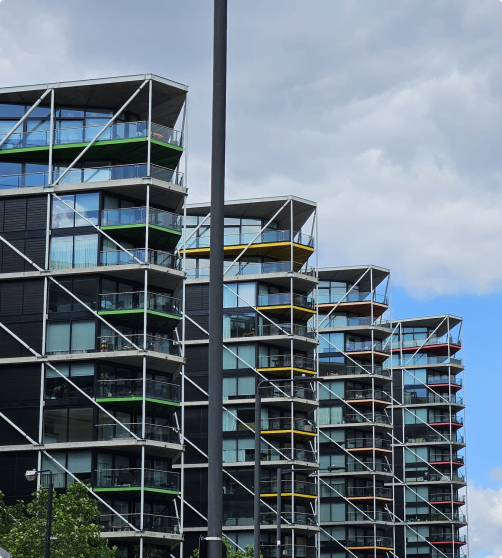
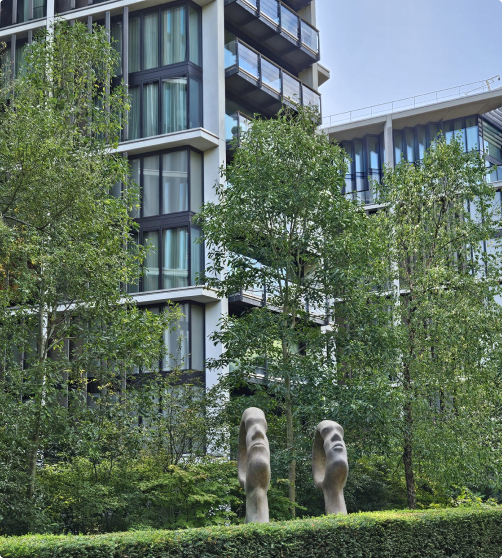
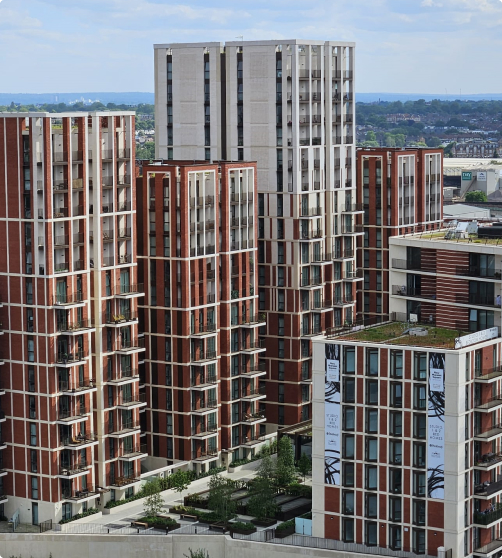
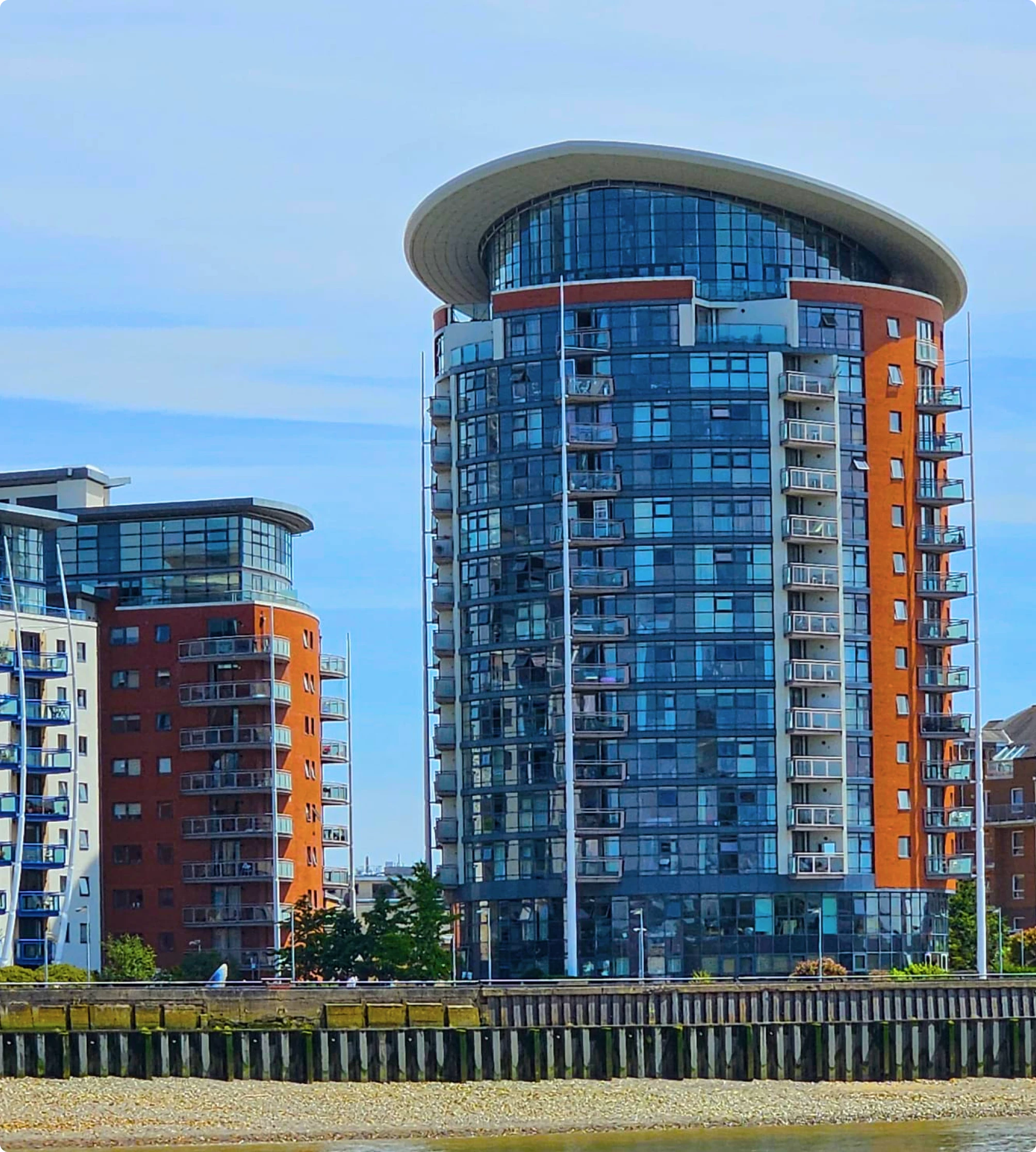




 100% right the 1st time (contractors repair the right item!)
100% right the 1st time (contractors repair the right item!) Easier to: analyse faults, manage end of life planning
Easier to: analyse faults, manage end of life planning
 Share & improve records with 3rd party collaboration
Share & improve records with 3rd party collaboration Work on correct leaf/fire door
Work on correct leaf/fire door Easy to check if an item is certified safe to use
Easy to check if an item is certified safe to use Answer questions whilst on site: service history? Next inspection due?
Answer questions whilst on site: service history? Next inspection due?
 Bonus! Can feeds into and closes fire risk assessment actions
Bonus! Can feeds into and closes fire risk assessment actions















